Orange City of Zagreb on ECDC Corona Map, August 12, 2021
August 12, 2021 - An orange City of Zagreb can be found on the latest ECDC map released on Thursday, August 12, 2021. The capital is no longer green, thus moving to orange where Croatia's coast has been for the last few weeks.
The European Center for Disease Control has updated its corona map, reports Index.hr. The Croatian coast is still in the orange zone, and the City of Zagreb has changed from green to orange.
The ECDC Epidemiological Map for Europe is published weekly based on the 14-day incidence and the proportion of positive tests in the total number tested.
The ECDC map is advisory, but some Member States rely on it when introducing epidemiological restrictions upon returning to the country.
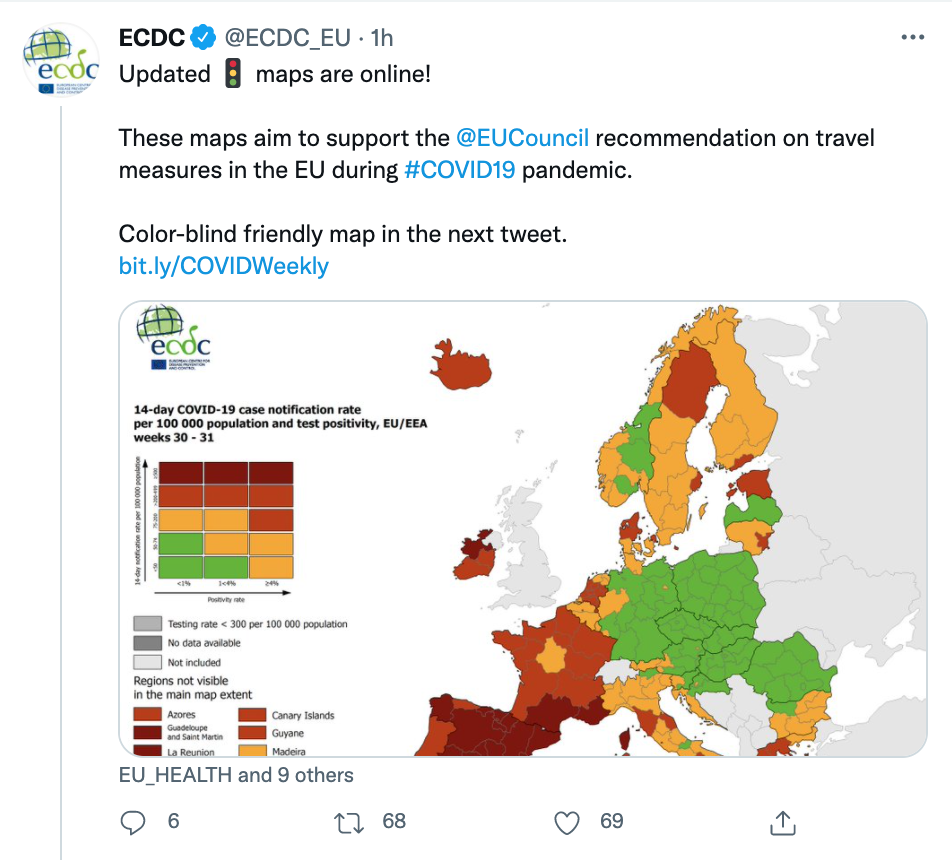
The situation in Europe is becoming more serious
Spain is marked totally in dark red. Parts of France have now turned red, and only one orange region remains. Italy is also changing colors, as are parts of Slovenia from green to orange.
Croatia's COVID-19 update
In the last 24 hours, 333 new cases were recorded, and the number of active cases in Croatia today is a total of 1552.
Among them are 192 patients on hospital treatment, of which 19 patients are on respirators. 3 people have died.
Since February 25, 2020, when the first case of infection was recorded in Croatia, a total of 366,049 people infected with the coronavirus have been recorded to date, of which 8,278 have died. A total of 356,219 people recovered, of which 176 in the last 24 hours. There are currently 4568 people in self-isolation.
Number of newly infected by counties according to Koronavirus.hr: City of Zagreb (92), Split-Dalmatia (69), Zagreb (34), Šibenik-Knin (33), Zadar (28), Dubrovnik-Neretva (12), Primorje-Gorski Kotar 11), Istarska (10), Ličko-senjska (7), Osječko-baranjska (7), Brodsko-posavska (6), Bjelovarsko-bilogorska (5), Varaždinska (5), Međimurska (4), Koprivničko-križevačka 3), Sisak-Moslavina (3), Karlovac (2), Krapina-Zagorje (1), Vukovar-Srijem (1), Požega-Slavonia (0) and Virovitica-Podravina (0).
You can see all of Croatia's COVID-19 data at koronovirus.hr.
For all you need to know about coronavirus specific to Croatia, make sure to bookmark our dedicated COVID-19 section and select your preferred language.
Croatia's Coronavirus Update: 333 New Cases, 3 Deaths, 176 Recoveries
ZAGREB, 12 August, 2021 - In the last 24 hours, of 8,187 tests performed for coronavirus, 333 have come back positive (4%), and three more persons infected with the virus have died, the Croatian national COVID-19 crisis management team reported on Thursday.
Currently, there are 1,552 active cases of the infection and of them, 192 are hospitalised patients, including 19 placed on ventilators.
Since 25 February 2020 when Croatia registered its first case of the infection with the novel virus, 2.38 million people have been tested. Of them, 366,049 have contracted the virus, of whom 8,278 have died while 356,219 have recovered, including 176 recoveries in the last 24 hours.
During the vaccine rollout, as many as 3,148,900 doses have been administered.
To date, 1,671,367 people have been given at least one shot. A total of 1.534 million have been fully vaccinated, 1,477,533 have been given two doses plus 57,212 who have received a single dose Jannsen, and thus 45.52% of adult Croats have completed their vaccination.
Božinović: COVID Cases Rising, But Situation Better than in Other Countries
ZAGREB, 12 August,2021 - Interior Minister Davor Božinović said on Wednesday coronavirus cases in Croatia were rising but that the situation was better than in other countries.
Speaking to the press, he said that was to be expected given the large number of tourists and that it was key that people complied with COVID rules.
Božinović, who heads the national COVID-19 crisis management team, said everything should be done to encourage people to get vaccinated and that the only way out of this crisis was by relying on science.
He would not speculate whether the use of COVID certificates would be expanded, saying that would depend on how the COVID situation developed, but added that they were "already being used smartly."
Božinović would not comment on the Serbian leadership's claims that Croatia was reporting fewer coronavirus cases for the sake of tourism, calling them blanket assessments.
He said every local COVID crisis management team had designated premises for tourists who might be positive. "We are certainly one of the states transparently communicating with citizens and abroad."
That, he said, also applies to claims that tourists are returning home infected. This year there is more testing and those infected are accommodated on premises envisaged for that, he added.
There is an EU early warning mechanism which shows that about 100 people have returned home positive, Božinović said. "We don't know if someone becomes positive during the incubation period."
Vinko Martinović alias Štela Arrested in Mostar on Croatia's Warrant for 1996 Murder
ZAGREB, 12 August, 2021 - Vinko Martinović alias Štela was arrested in Mostar on Wednesday on a warrant issued by Croatia over the 1996 murder in Mostar for which the Croatian Supreme Court sentenced Martinović to 10 years in prison in 2020.
Martinović's arrest was confirmed by the Bosnia and Herzegovina state investigation agency (SIPA).
In 2016, Zagreb County Court delivered a guilty verdict against Martinović and sentenced him to seven years in jail for the murder of Jasmina Đukić in Mostar in 1996, who was killed by Martinović and his accomplices to obtain her flat which they sold after her execution.
Martinović, previously convicted of war crimes against Bosniaks, was released from an Italian prison in January 2012 after serving two-thirds of his 18-year prison sentence handed down by the Hague war crimes tribunal for the former Yugoslavia (ICTY).
Two months after his release in 2012, he was arrested at a Croatian-Bosnian border crossing on a warrant issued by the Zagreb County Court in 2008. In 1998, the Zagreb County Court accused Martinović of the Đukić murder and that same year sentenced him to eight years' imprisonment pending appeal, but five days before his transfer to the Hague tribunal in August 1999, the Supreme Court quashed the ruling and ordered a retrial. The Croatian Supreme Court ordered the retrial after it upheld an appeal by the prosecution against the acquittal rendered by the Zagreb County Court in 2013.
After the Zagreb court delivered the guilty verdict in November 2016, Martinović fled Croatia. In 2020, the Supreme Court imposed a longer sentence, that is 10 years, for that crime.
HT Telecom, Tommy Retailer Opening Fast Charging Stations along Coast
ZAGREB, 12 August, 2021 - Hrvatski Telecom and the Tommy retail chain are opening fast charging stations for electric vehicles in Dubrovnik, Malinska on Krk island, Solin, Split, and Zadar, Hrvatski Telekom said on Wednesday.
These will be the first fast charging stations as part of Tommy stores at those locations.
Charging will be free from 7 am to 10 pm and HRK 2.60 kuna/kWh plus VAT the rest of the time.
The fast charging stations for electric vehicles were set up as part of a project, co-financed within the EU's Connecting Europe Facility, aimed at ensuring top-quality charging both for domestic electric car drivers and tourists.
HT operates over 550 charging stations at over 240 locations in Croatia, the Czech Republic, Montenegro, Kosovo, North Macedonia, Romania, Albania, and Poland, the company said, adding that its espoTs app gave Croatian electric car owners access to charging at over 50,000 stations in over nine countries.
The company said that with nearly 150,000 active charging sessions and by enabling over 10 million green kilometres, the HT was the e-mobility leader in Croatia and the region.
Charging at HT-operated stations may be activated by the T-RFID prepaid card, the espoTs app, and, for foreign drivers, by e-roaming contracted with over 60 European charging providers.
Frenchman Dies Attempting to Dive into Cave 30m Underwater on Korčula
ZAGREB, 12 August, 2021 - A 46-year-old Frenchman died on Korčula island on Tuesday night attempting to dive into a cave 30 metres underwater, Dubrovnik police said on Wednesday.
He was with another French citizen, his underage son, according to the media, who was hospitalised in Split.
Dubrovnik-Neretva County police received a report around 6 pm which said that foreign citizens on the southern island needed help. Officers established that the Frenchman was freediving on Korčula's south side around 4 pm, attempting to dive into a cave 30 m below the sea.
Since he was not coming up, the other French citizen, who was in a rubber boat, dove after him and found him unconscious.
Police took the 46-year-old to Vela Luka, where doctors tried to revive him but failed.
NGO: Nearly 8 in 10 Croats Aged between 18-34 Still Live with Their Parents
ZAGREB, 12 August, 2021 - The Croatian Youth Network, an umbrella association of NGOs bringing together young people, on Thursday stated that as many as 76.9% of young Croatians aged between 18 and 34 still lived with their parents, which made this NGO make inquiries about the government's youth policies.
The NGO underscores that in terms of the share of young people living with their parents, Croatia tops the EU rankings.
On the occasion of 12 August, observed as International Youth Day (IYD), the Croatian Youth Network sent requests to Prime Minister Andrej Plenković and the state secretary Željka Josić, who is in charge of demographic affairs, about what has been done so far in connection with the recommendations which this network made a year ago.
The network insists that "a rising unemployment, housing insecurity, a lack of high-quality education, insufficient participation of young people in policy-making" are some of the problems adversely affecting the status of young Croatians.
It warns that the statistics show that during the COVID-19 pandemic as many as 8,000 people aged between 21 and 29 are out of work in the country.
The Croatian Youth Network criticises the authorities for a change of models of financing NGOs representing youth interests.
It says that the recent reduction of funds for the capacity strengthening of nongovernmental associations from 700 million to 100 million kuna will adversely impact the survival of those organisations that are not budgetary users while they have 16,000 people on their payroll.
(€1 = HRK 7.5)
Coffee Bars in Croatia Could Collapse With Further Restrictions, Says NUU
August 12, 2021 - Yesterday a meeting was held in Opatija between associations linked to the tourism sector and government authorities. They spoke of the current situation of the catering industry, coffee bars in Croatia for example, and also of its precarious future if restrictions are imposed and financial support is not provided.
The National Association of Caterers (NUU) also participated in the meeting of the tourism sector with representatives of the Government of the Republic of Croatia held in Opatija, reports HrTurizam. The importance of this meeting is shown by the fact that 21% of all companies in Croatia operate in the tourism sector, of which 2/3 are caterers, and whose position was discussed by Jelena Tabak, President of the National Association of Caterers.
According to the press release of the NUU, the meeting in Opatija discussed the successful figures in the booking of foreign and domestic tourists and discussed the burden and damage suffered by the hospitality sector.
"The already fragile catering industry, faced with a high tax burden, illiquidity, and a chronic shortage of manpower, has been put at the forefront of the defense since the beginning of the pandemic by restrictive business measures", the statement said. For all catering companies, such as coffee bars in Croatia, which perform activities of preparation of drinks and beverages only, work indoors is still prohibited.
By working in controlled conditions, limited working hours and enclosed spaces, this part of the sector has once again shown its size and proved that it carries a pandemic on its back in addition to the health system. According to the caterers, further restrictions in the catering business will protect the rest of the tourism sector, which is the basic bread of Croatia, according to the caterers.
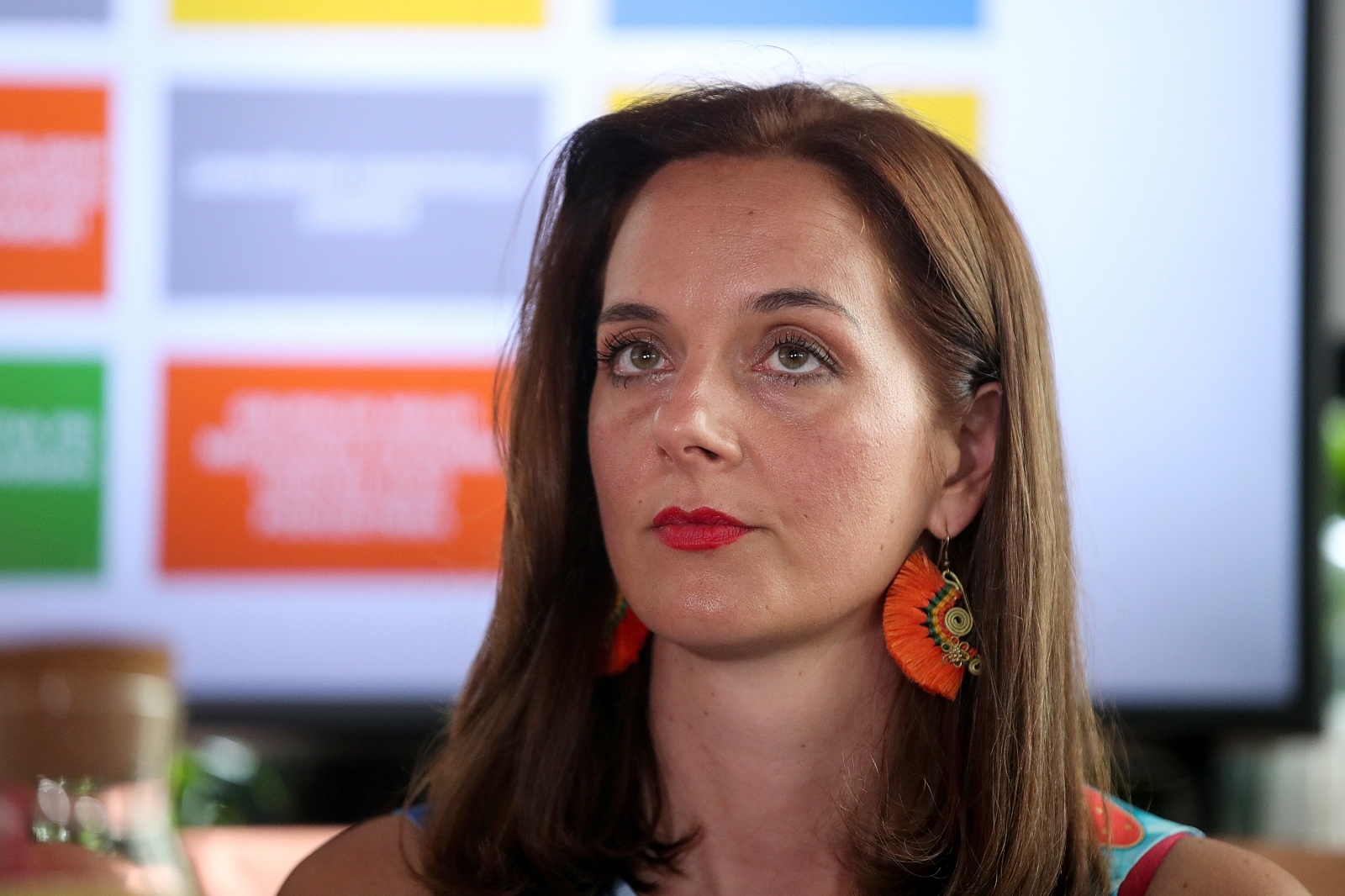
Jelena Tabak, President of the National Association of Caterers (NUU) (Photo: Goran Stanzl/PIXSELL)
Given that this attitude further leads to the collapse of coffee bars in Croatia, Jelena Tabak appealed to the Government and the Ministry of Tourism to stand behind this part of the sector as soon as possible and actively participate in its recovery and quality development, with the collegiality of all other colleagues in the sector, to which the caterers did so at a time when the number of paid visits to Croatia must not be jeopardized.
According to the presented results, for now, we have a very good chance to finish the season, fall and winter, but the damage is too great to repair in the foreseeable future without the implementation of tax relief and long-term reforms. The lack of reforms will encourage an already excessive outflow of the qualified catering staff who bring to their senses the quality of service and a successful tourist year.
We hope that more such meetings will be held shortly and that the trend initiated by Minister Nikolina Brnjac with the Prime Minister of the Republic of Croatia will become the rule because only with an interactive approach and joint efforts of all tourism stakeholders and caterers associations it is possible to achieve tourism success.
For more, follow our business section.
National Geographic Promotes Croatia to 170 Countries on September 19!
August 12, 2021 - National Geographic promotes Croatia on September 19 through three television shows broadcast to 170 countries worldwide!
About 170 countries around the world will have the opportunity to get to know Croatia during a historic day for the county on the National Geographic channel! On September 19, Croatia will present itself to the world for the first time on one of the world's most-watched television channels. Through three different shows, Croatia will be shown as a top destination for all lovers of research, gastronomy, adventure, and science, reports Jutarnji List.
The world-famous chef Gordon Ramsay dedicated one of the episodes of the third season of "Gordon Ramsay: Uncharted" to Croatia. Under the expert guidance of the local population and his host, famous Croatian chef David Skoko, with whom he measured his culinary strength, Ramsay dived in Istria, hunted goats and donkeys, searched for truffles, and prepared several recipes using local products such as fresh eggs, goat cheese, and olive oil.
With the episode filmed in Croatia, Gordon takes viewers on a trip to Portugal, Mexico, Texas, Maine, Puerto Rico, Island Smoky Mountains in America during the third season, with which Croatia will be presented this year as one of the world's most interesting destinations!
Apart from "Gordon Ramsay: Uncharted," the world will have the opportunity to see and experience Croatia from a bird's eye view in the show "Europe from Above." Beautiful and relaxing shots of Croatia from the air will travel the world and promote Croatia, especially the lesser-known towns of Ston and Metković, the fairytale Motovun, Pula, and more.
Finally, in the popular show "Inside the Factory," viewers will have a unique opportunity to peek into the fascinating Rimac Automobili factory, during which the world will get to know Croatia as a country of knowledge and innovation.
Episodes about Croatia will be broadcast on September 19, 2021:
21:00: Gordon Ramsay: Unchartered
22:00: Europe from Above
23:00: Rimac Automobili
For more, make sure to check out our dedicated travel section.
Croatian Author Igor Pavela on Hospitality and His Scientific Book
August 12, 2021 - Croatian author Igor Pavela who wrote the first Croatian scientific book on hospitality, is currently waiting for the book to be translated into English. TCN reporter Ivor Kruljac met up with Pavela to discuss both the book, but also the current situation in the Croatian hospitality sector.
April 2021 saw the release of ''Excellence as a Standard in Hospitality Business'' (Izvrsnost kao standard u ugostiteljskom poslovanju), the first Croatian scientific book on hospitality in which author Igor Pavela explored what it takes to successfully run a business and ensure both an excellent offer and enjoyable atmosphere for the guests.
The book's author, Igor Pavela, has been in the hospitality business for the past 16 years. He has gained invaluable experience in various aspects and from multiple positions. Back in April, he was a manager in one of the largest American cruise ship companies and today works for the Maslina Resort in Stari Grad on Hvar island.
He has closely worked with top managers and CEOs of various big international tourism and hospitality companies in his rich career, and he also found time to train management and other employees with his educational material helping them to increase the quality of their overall standard. The educational materials Pavela has written for his training sessions eventually pushed him to write this book, now reviewed and praised by the academic community both in Croatia and in the wider region.
The book boasts a combination of his personal work experience and extensive scientific research encompassing marketing, communication and even ethics (to name just a few), and how one can go about applying it to hospitality sector success.
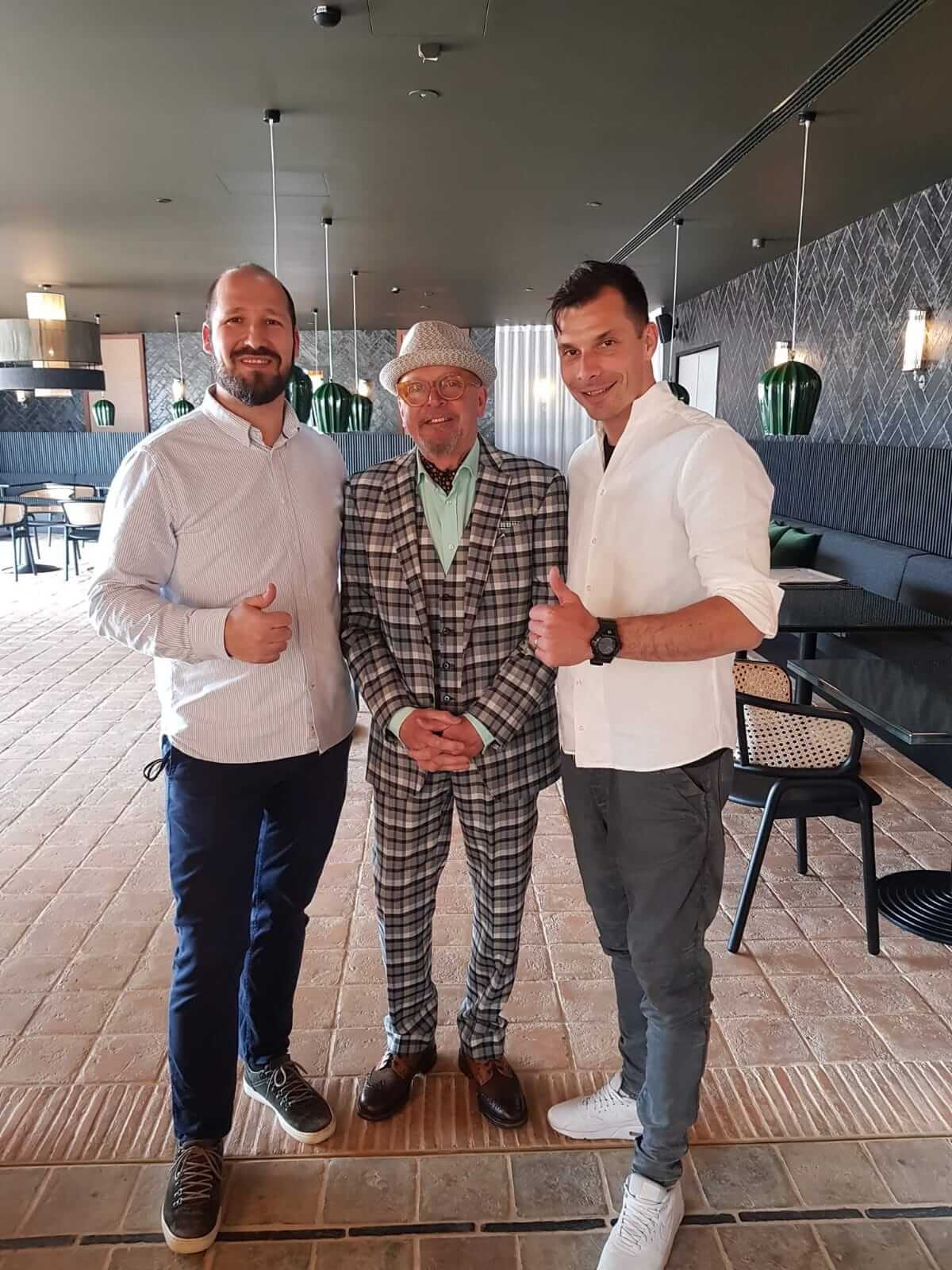
Maslina Resort management team. From left to right: Mario Kolumbic Maitre'D , Chris Edwardes as consultant, Igor Pavela Bar Manager © Maslina Resort
Ground rules in one place
With academic opinion being relevant for knowledge when it comes to scientific literature, Pavela, at the very start of the interview, also said that the first version of the book, which was constructed as his personal business manual, was reviewed by his close friends, colleagues, and ex-partners, all those who have been established in the hospitality business for decades.
''The first information I got as their feedback was that they'd never seen such valuable information presented in a way which is both easy to read and easy to implement. It combined the scientific research that provides the facts and my personal experience which I tried to pass on in the book like a tutor would in order to say what works and what doesn't,'' recalled Pavela.
Pavela pointed out that the hospitality sector encompasses a very broad range of occupations, and there are differences between cruise ships, fine dining restaurants, nightclubs, hotels, and other types of hospitality businesses. With that being said, there are also basic ground rules that are the same for every type of function. His colleagues who learned what works in business the usual way, by experimenting and seeing how things work out before changing and adapting things, rated the book in such a positive way, and Pavela looked more than happy with the impression his writing had had on others in his field so far.
With support from University College Aspira that both published and also held a book presentation for their former student, significant developments are happening for the book as it is currently being translated into English. With the global market not really having a scientific book of this kind under its belt yet, the options seem endless once the translation is complete. Ambitious but realistic, Pavela revealed further plans for the book.
''The book just recently came out in April (it could've come out earlier, but we waited for the unprecedented and catastrophic period for hospitality as a result of the pandemic to calm down). The translation will take around a month and a half to be completed by a professional agency that we hired, and after that, it will be reviewed. As the Croatian version was given to three doctors of science to be reviewed, it will also be reviewed by three very well-known and established names before going out onto the European market. They will, upon agreement, get an example of the book to review it and score it objectively,'' explains Pavela.
He continued by explaining that the book is now the subject of negotiations with a very known high-level sponsor in the hospitality sector. While not being able to reveal the name of the sponsor, Pavela says this sponsor plans to open an academy and to educate their staff based on Pavela's book, which is making its way to hospitality-related education in Croatia, from those in high school to those in higher levels of education. In addition, there is a plan to distribute the English version as an electronic book. The plan is to connect with big e-book distributors such as Amazon to make the book accessible globally, for students, professionals, those who want to start their business and those who are just curious readers with a desire to learn more.
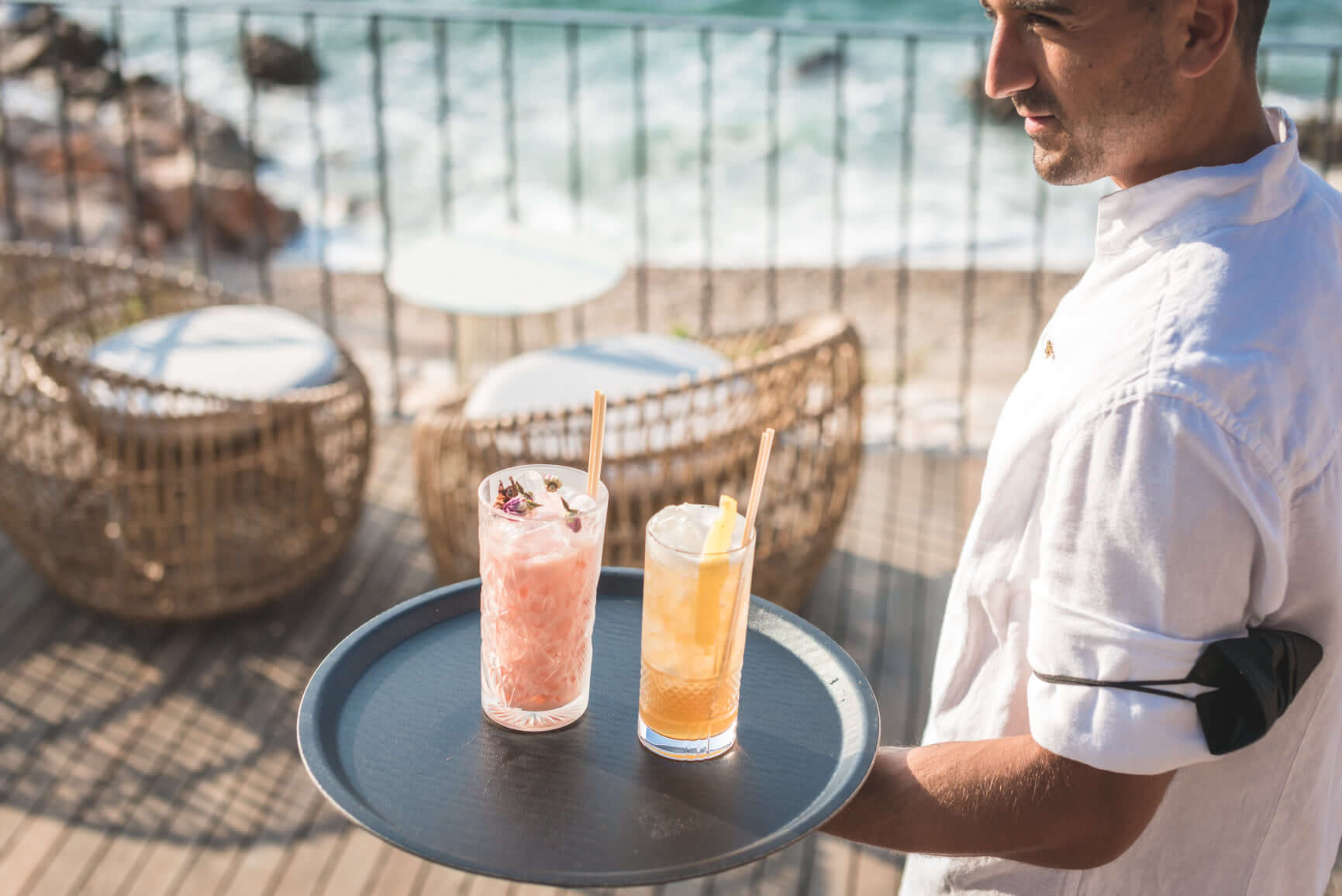
© Maslina Resort
Switzerland is the place for experimental physicists thanks to CERN, Japan is doing wonders in robotics, and American and British scientists are making significant historical contributions to the fields of sociology and anthropology. Maybe this book would position Croatia as a leader in scientific observations of hospitality. When asked about this, Pavela said that it is a wonderful idea, and his greatest desire.
"My first intention when I started writing this book was to collect all global experience, which is different, if not more advanced than what is garnered in Croatia alone. I wanted to bring it home because at the end of the day, this is my home and where my heart belongs. Croatia has natural resources that need to be used more, and that also means not just promoting them, but we should be on the level required to be the high-level destination to attract high-level clients from all over the world.
I think Croatia, unfortunately for years now, hasn't been at the required level, and there has been a sea of negative comments from guests as a result. There were good sides too (tourism has been growing more and more since the Homeland War), but from the side of science, we have to see the negative sides because that's something we need to look at in our analysis and research to see what is wrong and why something is wrong so that we can work on it,'' explained Pavela.
The up-to-date research needed to scientifically and successfully explore what works and doesn't work truly needs to be constant, and the spirit of that mentality is reflected in the fact the book already has references and findings in regard to COVID-19.
Hospitality isn't just business but a purpose, too.
When it comes to things that need to be worked on, Pavela pointed out that many people in Croatia who work in hospitality are students and people who don't really take much interest and aren't really educated in the sector, thus bringing down the level of the country's hospitality services in general.
Within twenty minutes of interviewing Pavela, it became clear that he talks about hospitality with the kind of passion that isn't unusual to see among journalists or maybe even lawyers and doctors for their fields, professions who are generally quite romanticised in pop culture and where workers in the field don't view it as a job to put food on the table, but rather a call to contribute to better future. However, it is very unusual to recognise such passion for hospitality among people. How does one find such a spark in an field most people only view as a side job to achieve some higher goal? I asked.
''In one specific moment, I saw hospitality from a completely different level. I was still involved in the operational part of the industry, the back of the counter, serving and having conversations with hundreds of people every day. At one point, I had this click in my mind where I realised that just as food and water are a necessity for the body, these places of socialising are food for the soul that will not disappear even as the world changes with all this technology,'' Pavela said, recalling how he first fell deeply in love with hospitality.
He looked around the beach bar where we sat with delight, which, if more people could recognise it, would no doubt make your morning coffee in a cafe be taken in with a completely different view.
In recognising the energy which takes place when socialising after a hard day at work or school, he saw all members of the hospitality sector, from the highest decision-making managers to the waiters, as actors all involved in the collective task of making socialising as good as it can be.
''Hospitality isn't just an economic transaction of buying a product, here we offer so much more. Our service can make someone's day,'' said Pavela proudly, reminding me of how business deals, relationships, friendship and so much more is formed in a great atmosphere of hospitality service, thus really making a difference to the world.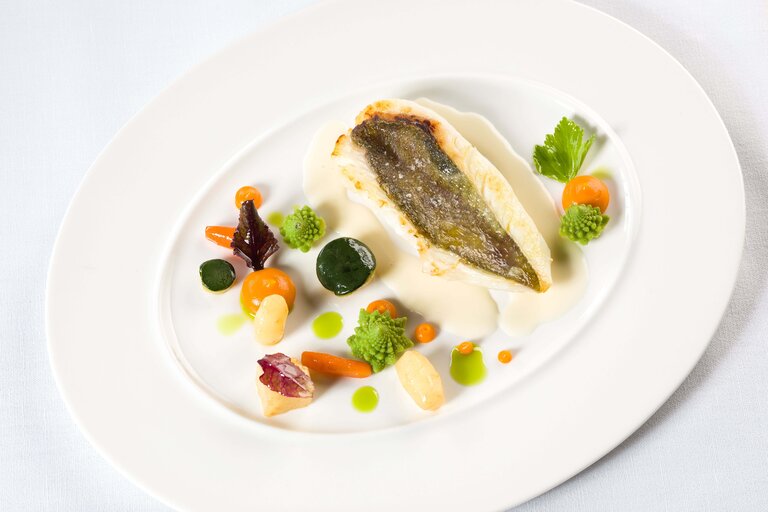
Maslina Resort's Mediterranean John Dory © Nikola Radovani
As you read through the book, Pavela stays true to his words, pointing out good examples but also bad ones from which other employees and owners can learn what to avoid. Despite positioning some of the aforementioned negative practices to his hometown of Split and the wider Dalmatia area, Pavela at no point mentioned a specific name or a venue that fitted any negative practices. Pavela is sure this doesn't damage scientific data and gathered knowledge, and his scientific objectives are evident in him not name dropping people or places that have good practices either. In this way, he avoided the potential accusations that his book is either paid trash talk or a paid word of praise for some business, which would put a serious strain on Pavela both as a scientific observer and as a hospitality professional.
''When you're writing something like this, it's a very sensitive thing. The purpose of the book isn't to call anyone out for doing bad things, and I don't think that should be in the book. If somebody does something bad and it ends up in the news or with them being sued, then there are other ways to learn about that. The book is about focusing on changing bad practices to positive ones, and even though I had specific places and names in my head, I didn't want to bring them out and sound unprofessional,'' explained Pavela.
''What I want is for those people behind positive and negative examples to recognise themselves,'' he said.
Solidarity should trump competition when building a destination.
In the end, this book of science and practice has an aim of helping others improve their own business. That wouldn't be weird if Pavela had already retired from the business, but with his active employment for Maslina Resort, an outsider's point of view might leave you thinking whether or not it is wise to ''spill the beans'' and all the tricks of the trade as direct competitors could out beat the master as the students of his findings and knowledge. That's a very logical question from outside, but Pavela only smiled with confidence as he assured me that this book's release would neither sabotage himself nor his colleagues.
''The beautiful thing about hospitality is there is something for everyone. The more types of hospitality we have present in our destinations, the better, because opening a new bar doesn't mean stealing guests from another bar. It means offering something different. Everyone can find something for themselves. Somebody will want to hit a brew bar. Someone will want a clubbing experience, and so on. Passing on knowledge is not damaging any of the places. The point is that we all grow together in terms of quality and the commitment to what we do,'' elaborated Pavela, revealing solidarity in hospitality which is hard to deduce from the guest's point of view.
As his book clearly elaborates on, it is wrong for a hospitality owner to try to catch everything and everyone with his offer. Specialising and targeting a particular audience (e.g. those who love quality food and wine, leaving out those who want cocktail bars as you focus on improving your gastronomic offer), along with investing in quality ingredients and keeping your workers happy are the key to success, as Pavela mentioned himself. These are just a few of the points you can find in the book, but in the end, it's best you read it for yourself here. Either in Croatian or you can wait a little longer for the English version.
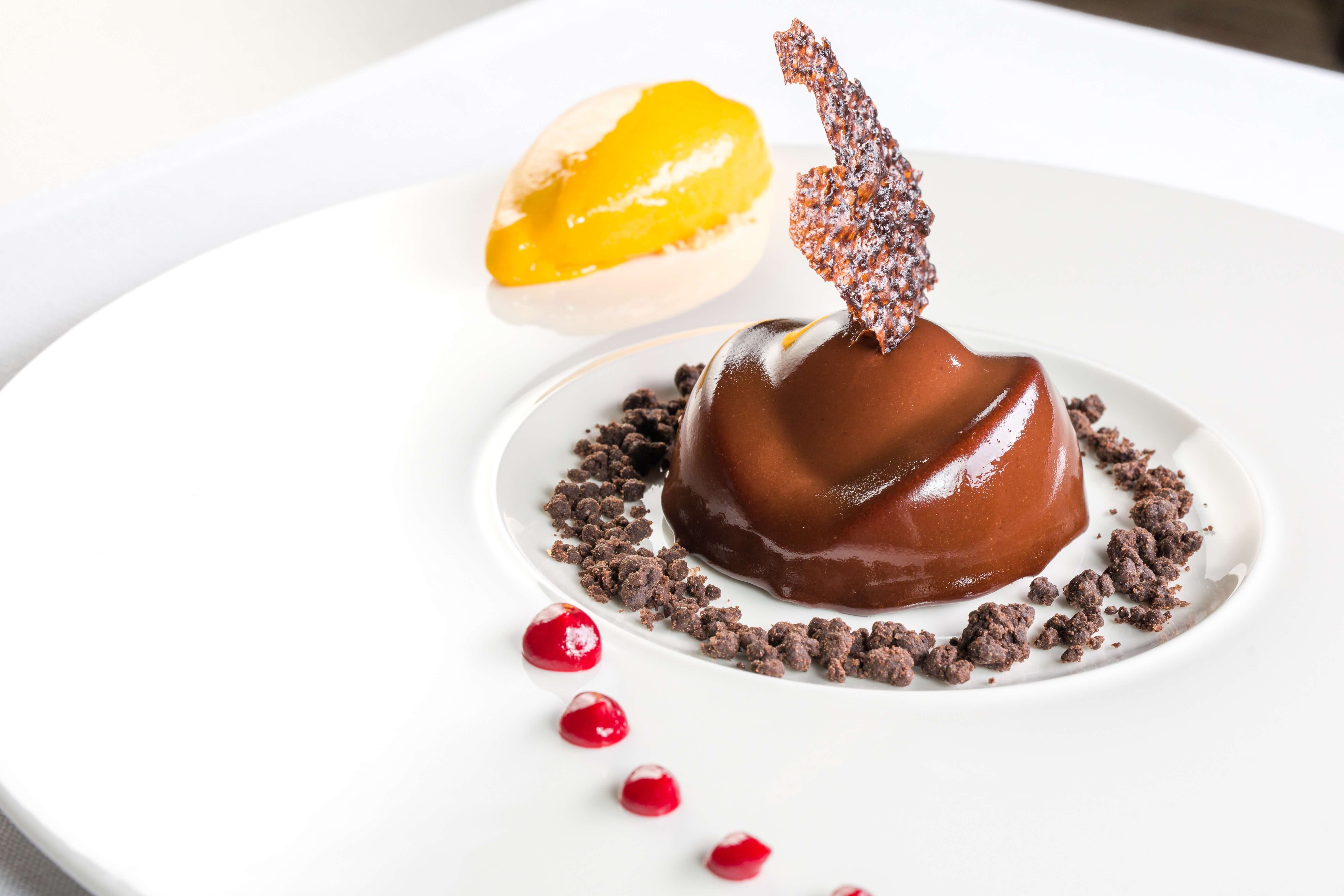
Maslina Resort's Chocolate Cherry Sphere © Nikola Radovani
It's worth remembering that science never sleeps, and with Pavela himself warning of this - the situation is changing constantly. Today's top formula for happy guests may be completely outdated tomorrow. Researching and learning are always welcome in order to show all those involved in this industry the way to providing the best service possible.
Learn more about Stari Grad on Hvar on our TC page.
For more about science in Croatia, follow TCN's dedicated page.


